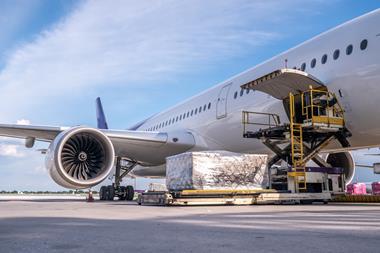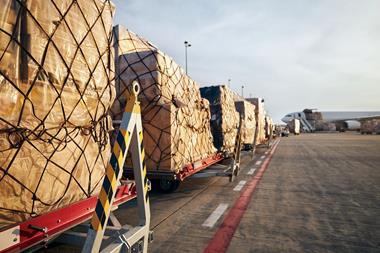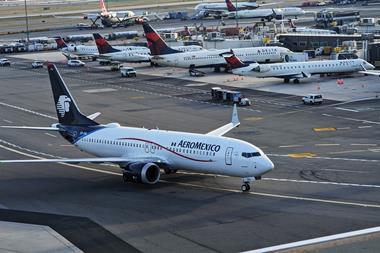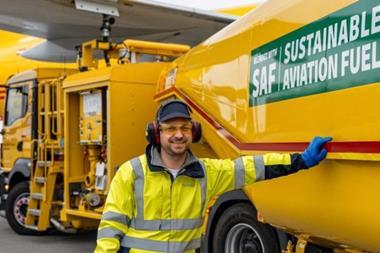Increased demand for airfreight out of Asia Pacific (APAC) helped DSV up its air cargo volumes in the second quarter of this year.
DSV's airfreight volumes increased 10% year on year in the second quarter to 349,076 tonnes compared to 316,456 in the same period last year.
"The increase was mainly driven by improved export from APAC, which was positively impacted by growing textile and pharma customer volumes out of China and sea-to-air conversion in the Indian sub-continent," said DSV in its H1 2024 interim financial report. "We estimate that we have grown faster than our addressable market on air freight."
The forwarder noted strong volume growth and market share gains in its 'addressable market' (that is excluding e-commerce and perishables).
Reported airfreight revenue was 9.9% up, while airfreight gross profit fell 17.4% due to lower gross profit yields.

Overall, the Air & Sea division recorded an 8.1% increase in revenue for the quarter compared to the same period last year "due to increased activity and sea freight rates". Gross profit for the quarter was down 9.3%.
"The decline in gross profit compared to last year was caused by lower gross profit yields in both air and sea," said DSV.
While overall figures from data providers show rising rates in the second quarter of the year, figures were dragged up by markets out China, in particular for e-commerce volumes, and rates in other markets declined.
Those forwarders with less of a presence in China and the e-commerce market therefore did not necessarily benefit as much as others. E-commerce companies also often have enough regular volumes to justify chartering their own aircraft, meaning they skip out the need for freight forwarders.
There can also be a lag between airlines increasing prices and forwarders being able to pass these through to customers, which has an impact on profit levels.
EBIT before special items for the quarter was down 18.2%. This was attributed to lower gross profit, which was partially offset by a reduced cost base compared to last year.
DSV noted gross profit was stable for airfreight and sea freight and said this indicated "a steady operational performance in a competitive and fluctuating market".
The company further stated: "While the situation in the Red Sea has not yet materialised in our financial results, it is expected to have a slightly positive impact in the second half of 2024."
Across the whole group, DSV Group saw revenue increase 9%, a decline in gross profit of 4% and a 12.4% decline in EBIT before special items compared to the same period last year
Jens Lund, Group chief executive, said: “In a challenging environment, we delivered a strong financial performance in Q2 2024 driven by positive volume growth and stabilisation of gross profit per unit in the Air & Sea division."
DSV is now amongst the final selection of companies who are bidding to buy DB Schenker. DSV did not comment on the specific acquisition process in its results commentary, but stated: "M&A will remain central to DSV’s strategy, and we believe that the combination of organic and inorganic growth will create a stronger DSV going forward."
Referring to its NEOM logistics joint venture, DSV said the project is ready to go live but is waiting for final approvals from authorities.
https://www.aircargonews.net/business/dsv-airfreight-volume-up-2-3-in-q1-but-profit-falls-with-rates/















